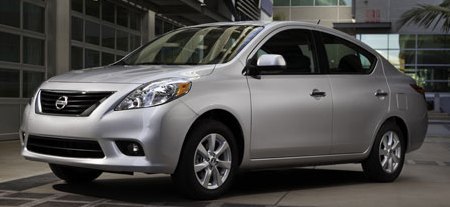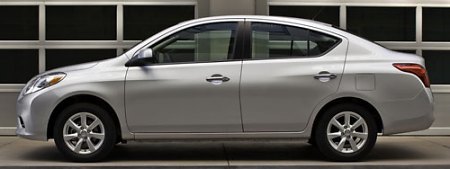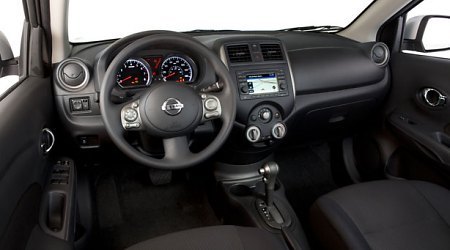| Published
on 22
Sep
2011 |
All rights reserved.
|
|
|

We have not exercised junk
rating to a new car for some years – if my memory is correct, the last
time was in 2005 when we gave it to Proton Savy. Owing to intense
competition,
these days car makers could no longer feed the market with rubbish.
They have learned how to produce cars cheaply without sacrificing the
minimum level of quality, dynamics and specifications. So it is a
surprise to see the return of junk rating on a newly launched model,
especially when it comes from the maker of GT-R. This car is called
either Sunny, Versa or Latio. The former is used in China and India.
The second name is used in North America. The last one is reserved for
Japan. They replace
the outgoing Tiida / Versa.
The fact that the new Sunny / Versa / Latio earns our junk rating is
not just
by the lack of luck. It was due to cost cutting. Compare with the
global B-platform on which the old car was based, the new V-platform (V
for versatile) emphasizes on lower production costs, thanks to
simplified construction and 20 percent fewer parts employed. Its lower
level of quality also allows the sourcing of cheaper parts from cheaper
suppliers. The negative impact was first seen on the new March (Micra),
which disappointed us last year.

The new Sunny / Versa / Latio is derived from the same platform. Not
just that,
it is deliberately downgraded. While the old car was noticeably a class
above the contemporary March, the new car feels just like a March with
a 150 mm stretch of wheelbase and a large trunk added. Nothing less and
nothing more. Its unbalanced proportion – with a short bonnet, long
trunk, narrow tracks and tiny wheels – fails to hide the fact that it
is a small car pretending to be a big one. Its interior is even a
carbon-copy of its smaller sibling, with similar low rent hard plastics
and cheap switchgears everywhere. Slam the doors and they sound as
hollow as the words of our political leaders. The clever sliding rear
seat has gone together with the useful hatchback door. What's left is a
very basic, uninspiring environment.
To call the jellyfish exterior design uninspiring is somewhat
understated. When everybody else are doing striking designs these days
(even Hyundai and Toyota), the Nissan is best to be described as crap.
It is dull to the extent of hateful. However, what I hate most about
this car is the way its creators treated it. Its designers and
engineers seemed to have no compassion at all in its making, just
wanted to finish the project at the shortest possible time ! They did
not put their "hearts" into the job. This is almost a sin in the
Japanese culture.

So how does the car feel on the road? Forgettable. Its 109hp HR16DE
engine, despite of dual variable valve timing and dual injectors,
provide no more than adequate power. Its new Xtronic CVT, despite of
wider ratio spread, is still the enemy to refinement. Without
suppressing rubber band effect, it tends to wind the engine to 6500 rpm
redline at any moderate acceleration, filling the thinly insulated
cabin with unbearable noise. Also due to the lack of sound deadening,
road noise is equally intrusive, so highway cruising is best to
be avoided.
Don't talk about driving fun either. This car is meant to be a basic
transport. You can't expect its electrical power steering to talk with
you, the soft suspension to return proper body control, or the drum
brakes to provide instant stopping. The fact is, few cars drive as bad
as it.
The positive side? Nissan said it offers more rear passenger legroom
than a Mercedes E-class, a notable achievement for its 2600 mm
wheelbase. Another talking point is its price tag, which makes it
currently the cheapest car on sale in the USA. Maybe, but without the
slightest consideration for quality, refinement and dynamics, the talk
of sheer space and bargain price sounds just like what GM did in the
past. And that old GM was dead.
|
Verdict:  |
|